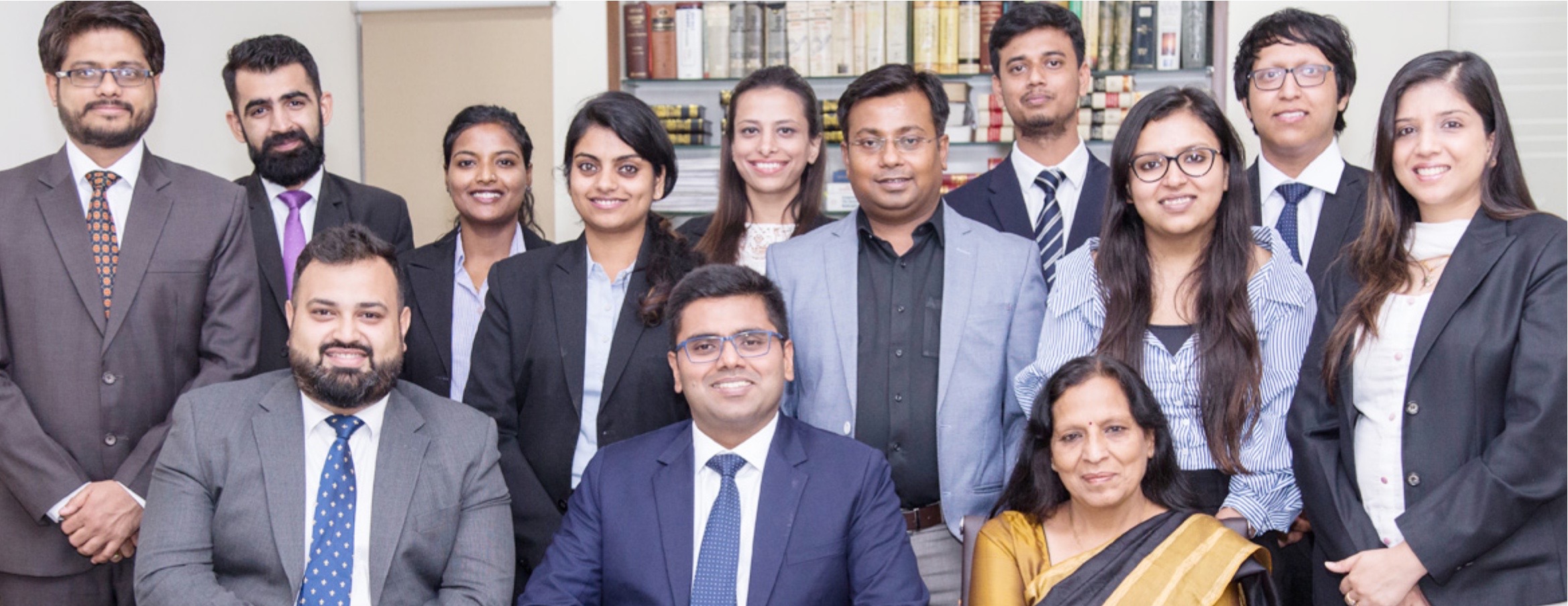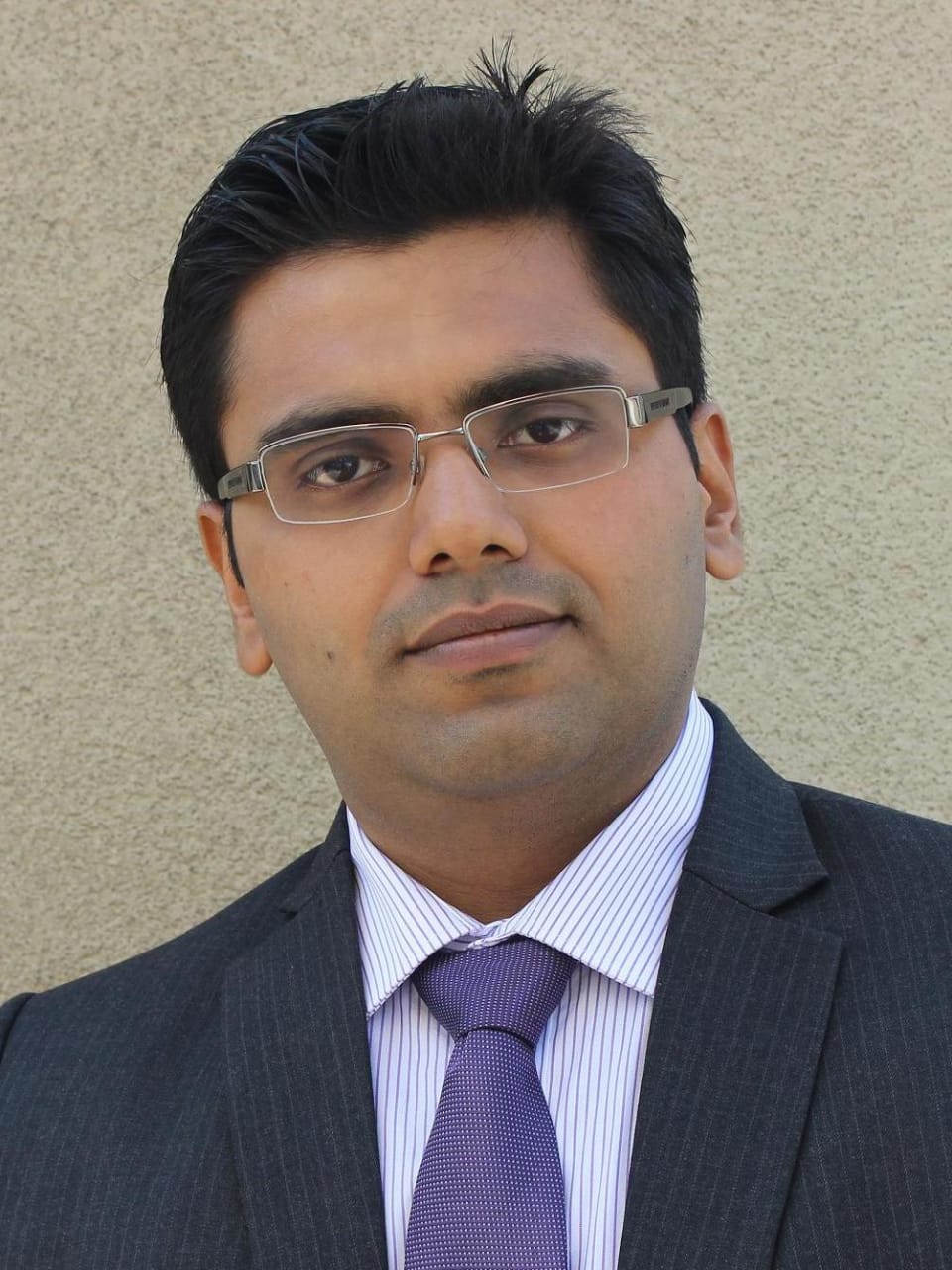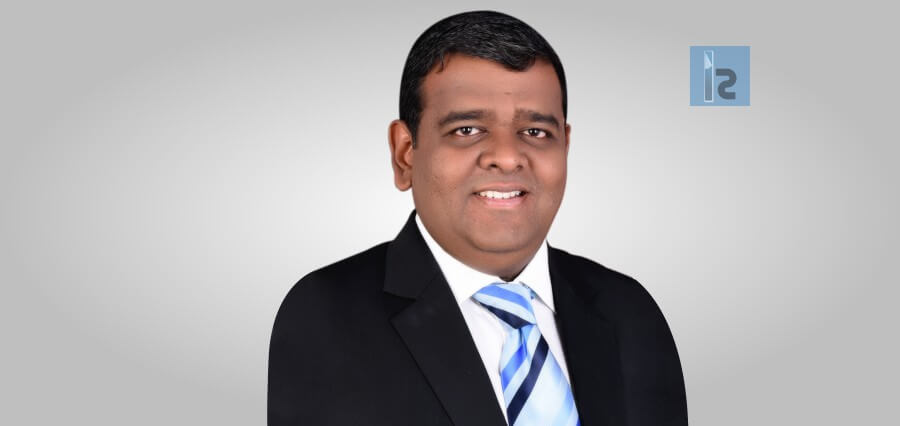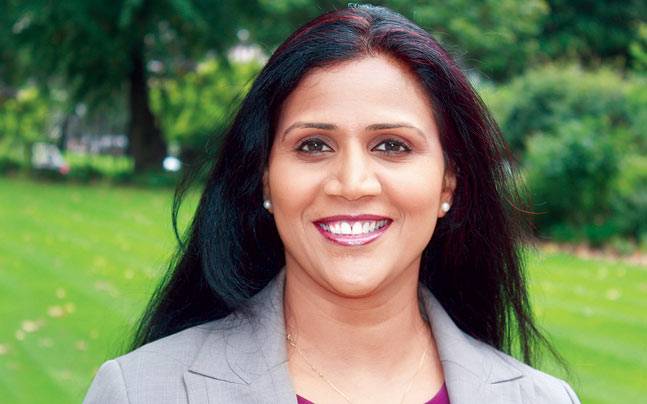ABOUT SONAL
Sonal is the Managing Partner of AKS Partners and spearheads the dispute resolutionvertical of the Law Firm.He advices Indian and multinational clients on several issues pertaining to International Arbitration and other commercial disputes.Renowned practitioner in the field of Arbitration since 2006. He has also been involved in LCIA, SIAC, ICC, ICADR, DAC Arbitrations, as well as Arbitration under UNCITRAL Arbitration Rules and ICSID Arbitration Rules. Sonal has extensively written on the subject of International Arbitration, with his research on International Investment Arbitration forming part of a book titled “Damages on International Arbitration” published by the British Institute of International and Comparative Law. He has also worked with renowned author and international arbitrator, Prof Martin Hunter during his time at the King’s College University of London.
POSITIONS HELD
- Committee Member, Indian Arbitration Group, International Chamber of Commerce, International Court of Arbitration
- Member, User`s Council, Singapore International Arbitration Centre
- Member, Indian Arbitration Forum
- Arguing Counsel for Government of Jharkhand, Supreme Court of India.
- Regional representative, Young Arbitrator`s Forum, International Chamber of Commerce (Asia), International Court of Arbitration
- The arbitrator, National Internet Exchange of India, Government of India
- Visiting Faculty for Arbitration, Symbiosis Law School Noida
Indian Law Watch in Conversation with Sonal K. Singh about his legal journey and vision ahead.

Q1. The journey from Meerut to London and then as the Managing Partner of the Law firm. Which part was most challenging and why?
Response. It would be untrue if I told you that only one or the other part was challenging. Each phase had its own joys and challenges which made the journey very interesting.
Honestly, I never desired a career in law rather, I felt that pursuing a career in Chartered Accountancy was more my calling. My family wanted me to pursue law as a career and so I did (though half-heartedly). I started taking the law classes at Meerut University (which allowed a candidate to pursue other professional courses simultaneously, unlike other colleges) along with the CA lectures and ended up obtaining my degree in law. It was difficult to manage two courses but honestly won’t term it as a challenge.
Afterwards, many of my peers/friends were applying to colleges abroad to obtain their post-graduation degrees. The idea of spending a year in a foreign land intrigued me. And like I said nothing was planned- I ended up applying to quite a few colleges and got an offer from UCL, King’s College, Queen Mary University, University of California, Berkeley. I wanted to go to Berkeley, but education in the US was expensive and finally, I opted for King’s College London. Credit to my journey from Meerut to London goes to my father and a few of my friends, who made me interested in the idea of going abroad.
My journey at King’s College was an experience that I had never bargained for. It was a wonderful experience that whilst transforming me as an individual, also opened my eyes to the limitless possibilities that a career in law held. I won’t deny that it was a challenging phase for many reasons. It was the first time I was away from my family in a new place, all by myself. I was conscious of the fact that I needed to make the most of this time for the sheer reason that my family had made an extraordinary decision to send me for my masters. I was aware of the cost and effort attached to it. This motivated me to make the most of my time in London. I participated in moot courts, stood for LL.M. elections and volunteered for student committees. While accomplishing all this, I felt it was also essential for me to gain some work experience in order to further my career prospects. However, this was easier said than done. And so, I interned with the British Institute of International and Comparative Law based in London where my work profile was of a “Researcher”. During this internship, I extensively researched for a book “Damages in International Investment Law” which was published by BIICL. The author was kind enough to acknowledge my contribution to his work and mention the same in his book. After this, I started working with a London based NGO which helped the physically disabled people to get their claims and justice. I worked at a call centre at the same time while I studied for my masters to support myself financially (though my family never wanted me to). Finally, I got an offer from Prof. Martin Hunter at Essex Court Chambers and I worked with him for a year where I was given exposure to legal knowledge, the working strategies, and atmosphere of a foreign firm. While the journey in London was tough, I came out of it a more self-reliant and a confident individual.
The real big decision that I had to face was whether to stay back and pursue a career in London or to come back to India. As the story goes, I made up my mind to come back to India as I felt that a career in India would be much more lucrative. I was expecting a red carpet treatment in India but soon realised it was a fallacy. After working with a few boutique firms, I decided to join A.K. Singh & Co. In the year 2009, A.K. Singh & Co. was at a very initial stage as a law firm.
I started managing the affairs of the firm in 2015. And going forward, things really started to fall into place. However, this part of the journey has been the most challenging by far. It is an extremely demanding task to maintain the client base, whilst also ensuring that proper operating procedures are in place along with managing the day-to-day administrative tasks.
While it was definitely challenging, it was also a great learning experience as in the beginning you don’t feel very sure about how to get started and as gradually your ideas and strategies start working out that is when you figure out what works and what does not.
Sometimes, in life, you are not sure how to carry on but all you need to do is to follow your instincts. Sometimes, life is not a journey that we envision for ourselves, rather at times, life takes us on a journey of its own. This is what happened to me. Little I knew, what I started half-heartedly, would become a passion for me in the future.
Q2. You have shared in other interviews we came across that your experience in London College was life-changing. Since you have studied in both India and abroad, what do you feel could be done in Indian Legal education system to bring a paradigm change that makes it at par with legal education imparted in the west?
Response. My experiences with the legal education system span a few years wherein I have had the advantage of experiencing both the Indian as well as the Western legal education system. I feel that both education systems have their own style, and both possess some unique ways of imbibing values and ideals in students. I believe the best way forward would be to create a hybrid system that borrows some ideals from both education systems.
To bring a paradigm change in the Indian legal education system, it is essential that students be encouraged to think critically, ask questions and be curious in general. This is to be followed by detailed readings on various aspects of the law in question. Last but not the least, the habit of writing needs to be inculcated within students. A great way would be to encourage students to draft their written projects without plagiarism. The emphasis has to be placed on in-depth reading, critical thinking and original writings.
Q3. India has presently ADR wave and various such centres are mushrooming. But you are a founder and managing partner of an Indian International and Domestic Arbitration Centre started way back in 2009. Please tell us a bit about this organisation and what motivated you to establish this organisation? Currently, how do you foresee the growth of the organisation with the growing buzz in ADR?
Response. While I was studying at King’s College, I was also associated with various places as mentioned. While I was associated with Professor Martin Hunter as a Research Assistance for a year, he offered me an opportunity to stay back and work for another year. It was such a great opportunity but it also left me quite confused as to what to do.
While I opted to come back to India, I was very keen on pursuing a career in International Arbitration. However, at that time, in 2009, there were only a handful of firms that were dealing with International Arbitration matters. Although International Arbitration was the next big thing, India still had some catching up to do at that time. And this motivated me to work on the establishment of a centre. I proposed the idea to Prof. Martin Hunter and we discussed it at length. He encouraged me to establish the centre and we are extremely proud to have visualised something like this at a time when there was not much discussion on the subject. The centre has been primarily involved in promoting awareness on international arbitration through seminars and workshops. Now although there are many such centres, however, we are in the process of becoming more active with our work and involvement in the centre.
Q4. Recently Asian Legal Business recognized you as one of the top disputes lawyers of India 2020. How does it feel to be the chosen one? What is your vision as a lawyer?
Response. I feel extremely humbled and honoured to have been chosen among many great names in the industry. It does feel great when you give your 100% to the task at hand and your hard work is recognised by such a big forum. To be honest, while I would say that it has taken some amount of hard work, determination and perseverance to get here, some of it was also destiny. Nevertheless, when we receive such immense recognition, it only serves to motivate us further to do even better work and serve our clients well.
I have always believed in the motto that
“Life itself is your teacher and you are in a state of constant learning”. And this is something that I follow both in my personal as well as professional life and I can proudly say that as a lawyer my vision is to always keep learning and growing. In order to be successful in whatever endeavour one chooses to undertake, it is important to always focus on growth and evolution. The only way to ensure this is to constantly strive to learn more and more each day. No matter where you are in life, learning should never stop. And adopting this mindset has greatly contributed to my vision as a lawyer as well”.
Q5. Which are the most memorable legal issue handled in litigation and corporate dispute resolution practice in the journey so far?
Response. There have been many such moments throughout my career. However, one that specifically comes to mind is a matter where we were representing a public sector undertaking (“PSU”) and the claim amount was nearly Rs. 3000 crores. The most challenging fact was that we were introduced to this arbitration at a stage when the PSU had already filed its four-page reply in a 3000 crore. We were forced to defend a 3000 crore claim with a 4 page reply. The only available recourse was to rely on legal issues in the matter, and rest find a breakthrough by research. We had come up with five tricky legal issues to deal with, and luckily, we managed to find the law on each aspect. Delineating these issues in detail would be quite lengthy for the purpose of this interview. The matter was special as we had very little to play with and still, our team took it as a challenge and came up with a unique legal proposition, which completely turned the tide in our favour. No one was expecting a favourable award, which we finally managed to get. The way we strategized the matter will stay with me for some time, at least till the time we find a more challenging case.
Q6. What are the basic disciplines as a lawyer you follow in your daily routine?
Response. The legal field is extremely challenging and demanding. There is tremendous mental pressure to have everything in order, be it managing client expectations, taking care of small administrative issues, etc. I feel that it is important to keep some time for ourselves. For this, I try and wake up early in the morning so that I can start my day early and I have some time to devote to my physical and mental well-being.
Also, staying updated on my readings, legal updates and case laws is primary on my list. I try to spend some time in the mornings reading important judgments, articles and books. This really helps keep me on track.
I always aim to avoid procrastination while working. Spending some time in the morning and making my To-Do list assists me a lot in the process of staying focussed. And this is something that I would encourage all young lawyers to inculcate.
Q7. What is the biggest change in the law firm from in its journey from A K Singh & Co to AKS Partners? What are the plans for expansion of the firm? What is so unique about your law firm from fresh lawyers centric, and client perspective?
Response. The entire journey from A.K. Singh & Co. to AKS Partners was extremely challenging, though fruitful. It took us 10 years to make this transition and it wasn’t easy to revamp the firm. There was a specific reason to re-brand which was to actually keep up with the market trends and to align our brand with the vision of the firm. Also, with the firm’s growing international practice, we felt it was necessary to re-brand and rename the firm.

I would say that the biggest change is that AKS Partners is more procedure driven and more professional in its outlook. While managing the affairs of the firm, we have ensured that there are proper SOPs in place for every task so that we are able to meet our client’s expectations properly.
Our expansions plans are already in place and on-going. During the current pandemic, we have been extremely fortunate to get good quality work, whilst also maintaining our efficiency and quality. While we are revamping the firm we are also expanding our practice areas. We have started our corporate division this year, whilst also taking our dispute resolution practice to the next level. We are also consistently expanding our team with talented young professionals who are as motivated to grow and develop themselves as we are about the firm because we believe that both go hand in hand. Motivated, hard-working people are the backbone of the firm. We are currently looking to hire qualified people possessing experience in the field of international arbitration.
For fresh lawyers, we ensure that we provide them with the maximum exposure possible in terms of drafting, arguing and appearing before courts and tribunals. We also ensure that young professionals receive the proper guidance and help they need at this crucial stage of their lives.
From the client’s perspective, it is the personal attention that we provide to our clients that they really appreciate. And we are able to do this because we constitute a small, close-knit unit of people who are hungry for success and to make a mark in the field. This is what renders us different from bigger firms and a preferred choice for clients.
Q8. Who is your role model in the legal field?
Response. It is very hard to pinpoint one when there are so many influential legal luminaries around us. I try to pick up and learn something from everyone. Having said that,at the start of my career I worked closely with my father, Mr. Rajiv Singh Chauhan, Mr. Rakesh Khanna Sr, Advocate, from whom I learned to work hard and constantly strive to learn more. I have immense respect for Mr Fali Nariman for his vast expanse of knowledge and Mr Harish Salve for his vision and dynamism. I also admire Mr Toby Landau, QC for his exceptional oratory skills and Mr Salim Moollan, QC for his eye for detail. Additionally, having started my career with Prof. Martin Hunter, I have immense love and respect for him in my heart for his knowledge, expertise and guidance proved monumental in opening the doors for me to pursue this path. However, like I said, the list can go on endlessly.
Q9. What are your favourite hobbies? Legal practice is a time investment profession, how do you maintain your work-life balance?
Response: I have quite a few hobbies, but reading and travelling acquire the top two spots. Reading is not merely a hobby but also something that is very essential in our dynamic profession. I have acquired quite a collection of books comprising of both educational as well as leisurely reads and I even carry my books while travelling.
Travelling and exploring new places is another thing that I am quite passionate about. I love taking some time every year to explore new countries and interact with the local culture, the people and the cuisine.
I just follow a few basic tips to maintain a proper work-life balance. Every morning before I start my day, I spend 10 mins to plan my day by making a To-Do List. It really helps me in dividing my time according to all the tasks I have to accomplish in a day. At the end of the day ticking things off my list gives me quite a sense of accomplishment. It is also important to get up early and devote some time to yourself, for your physical and mental health. With our demanding schedules, self-care becomes all the more important. Secondly, no matter how busy my day is, I try to include at least 30 minutes of physical activity in a day. I try and keep Sunday for the family. Honestly, my family has got used to my profession- so complaints have gone down gradually.
Q10. What are the biggest lessons and learning’s in legal practice as a lawyer and as a Managing Partner of the law firm you got from COVID times?
Response. The Covid-19 pandemic is going to have a lasting impact on our lives and it is essential to adapt, thrive and survive. As all of us strive to do our best work from home, it is extremely important to have defined rules and procedures for yourself and your colleagues. We have been working remotely since March 2020. Flexible working style is, of course, something all of us are adapting to over the course of the past year since everything is happening remotely and work from home is the new normal. However, caution needs to be exercised to ensure that flexibility does not lead to any lapse in work commitments. I find that even while working from home it is best to stick to a pre-defined set of work and leisure hours as close to the original pre-covid hours so that the schedule remains manageable. This is also something that I advise my colleagues at the firm.
Additionally, this pandemic has served a very valuable lesson to all of us, i.e., that everything is possible, everything is going to work out. In the legal field, we are always under pressure and it is important to realise that we need not overpush ourselves unnecessarily and impose self-created pressures.
Secondly, digital adaptation is a must. It is quite a prevalent practice in India to have physical, hard copies of case files, and other relevant documents.
This pandemic, though unfortunate, has given us an opportunity to digitally revolutionise our record-keeping systems. We ensure that all important documents are stored in a secured digital format for ease of access remotely.
Thirdly, working from home means we tend to have lesser social interaction with our colleagues. To counter this, it is important to have weekly virtual sessions where people can get together, chat about work commitments and life, while also sharing little bits and pieces of information that one may have picked up over the week.
Qs. 11. Like many law firms are coming out with Flexi work style post-COVID, so any change in the functioning of the firm post COVID in forethought?
Response: While working remotely since March 2020, our priority has shifted from functionality to ensure that the safety of our colleagues acquires topmost priority. Over the course of the past year, we have combined safety with efficiency so that even while working remotely we are able to provide our best services to the clients. Post-Covid we hope to adopt a more flexible style of working that allows all of us to take care of ourselves without compromising on efficiency and quality.
Q12. Any suggestions towards the strengthening of the legal system, legal practice in India from litigant perspective?
Response: The Indian legal system has to be made more litigant friendly. However, the kind of population that India has, it is very hard to implement and execute reforms. Even if done, such reforms will take a long time to show benefits.
To bring forth a systemic change, a complete overhaul is required. The first step should be to start at the law school level. We need to establish basic parameters for our education system so that we are able to create competent lawyers.
Secondly, the system has to be made more friendly towards the poor litigants. This category of people is the most distressingly affected due to the lack of proper representation at affordable costs. However, access to proper representation is not the only factor, establishing courts with proper infrastructure is also must, especially outside the metropolitan cities. As a part of this infrastructure overhaul, the number of judges across all courts in the country has to be increased so as to ensure ease of access to justice for all.
Q12. Last but not least, what is the most motivating quote of your life and your message to law students and especially to those young legal minds that are building their law firms in the field?
Response:
“Don’t stop when you’re tired, keep moving till you’re done.”
To be honest, the legal profession never stops and you are never done, however, perseverance is the key to success in anything. There are going to be failures and lows but you must always stick to your course.
Message to law students:
- Build a strategy– While starting out, finding some key areas to work on and focusing on them helps in increasing efficiency.
- In the initial years, you might need help from others, so don’t be embarrassed to ask for it.
- To succeed in anything in life including the legal professionone needs to enjoy what they are doing and be patient. As far as the skills in the legal profession are concerned, it is important to have good communicational and analytical skills. An eye of a perfectionist is what makes you stand out from the crowd. You need to know the art of meeting people and communicating with them. Apart from this, time management and the zeal to learn are the most important things.
Message to those who wish to build their law firms:
- The first and foremost step before you make a move towards establishing your law firm is to start by building a vision.Envision what you want for yourself in life, your goals and passions, if establishing a law firm is really your calling and if yes, what motivates you to pursue the idea. This will help build a strong mental foundation.
- The second step would be to start working on that vision at an early stage.Define what you need to do to achieve your goals and just do it.
- While you are taking the above steps, ensure that you also take steps to increase your legal knowledgeas knowledge always comes handy.
- The fourth step that is important for any law firm is to build a client base. For this, building a good repo with your peers is crucial. Always be open. Once you have been able to build a proper client base, make client retention a priority.
- Most importantly, once you think you are ready, do not hesitate and do not wait to hear what other people have to say.Just have a plan in place, get started, and don’t be complacent.













Add Comment